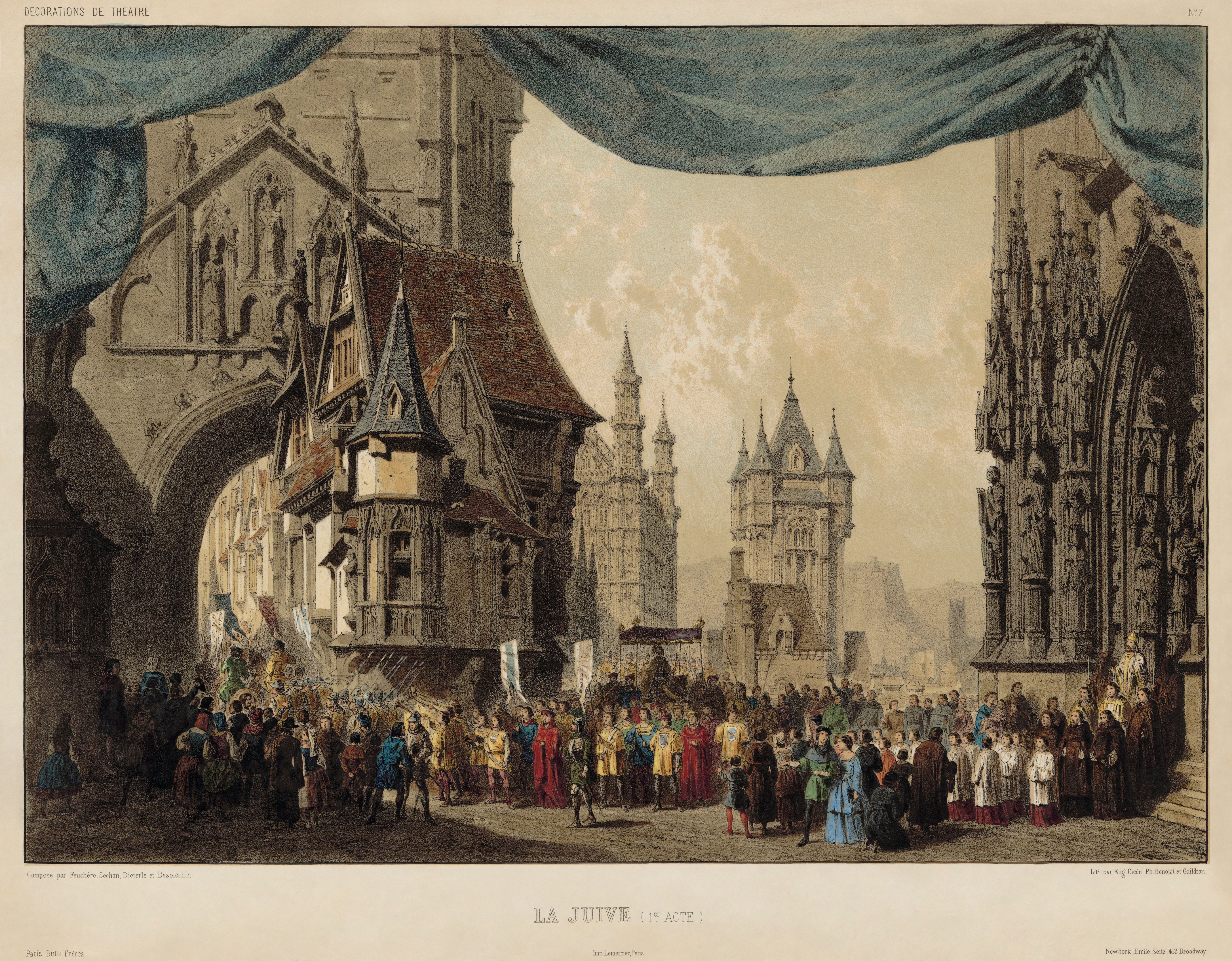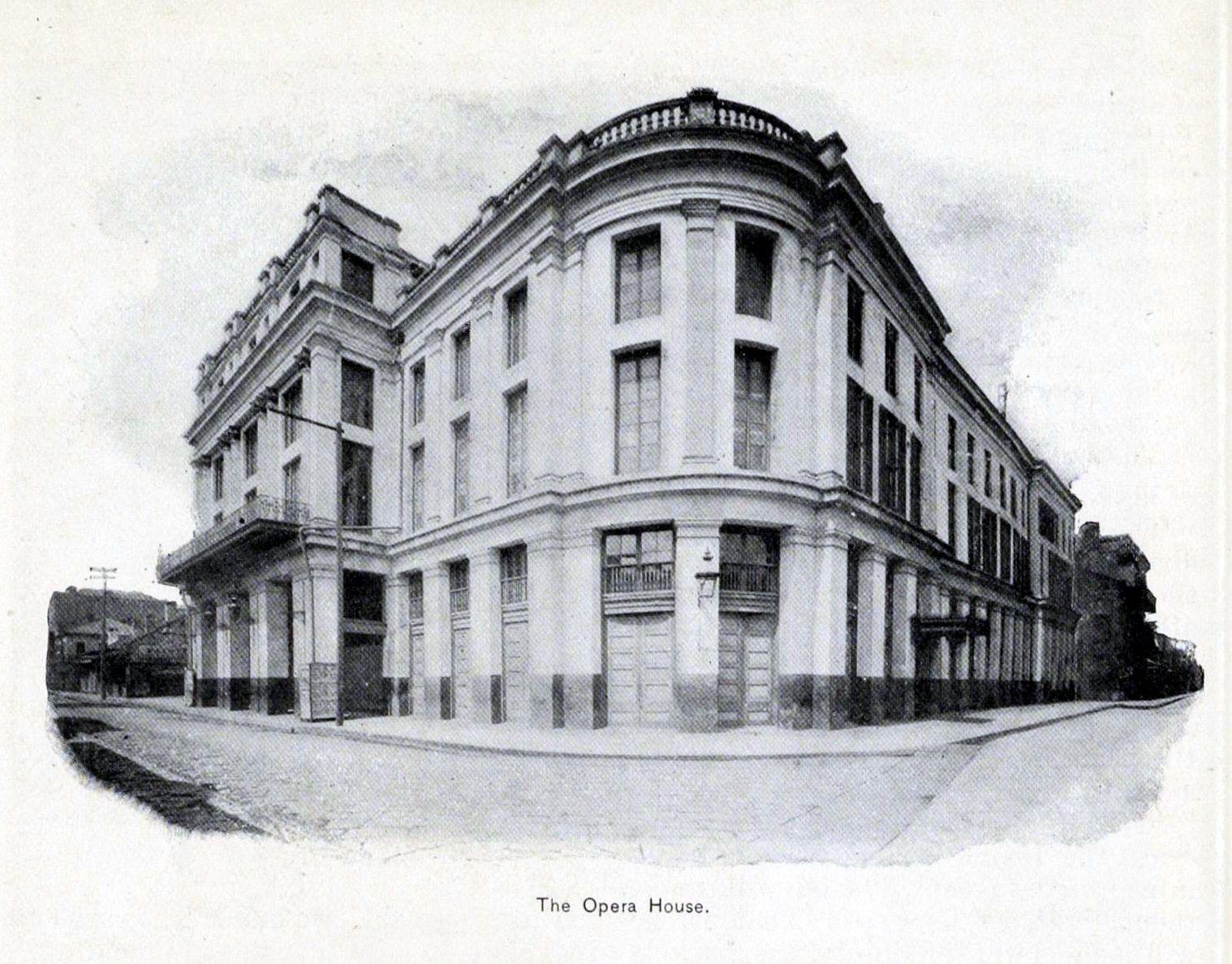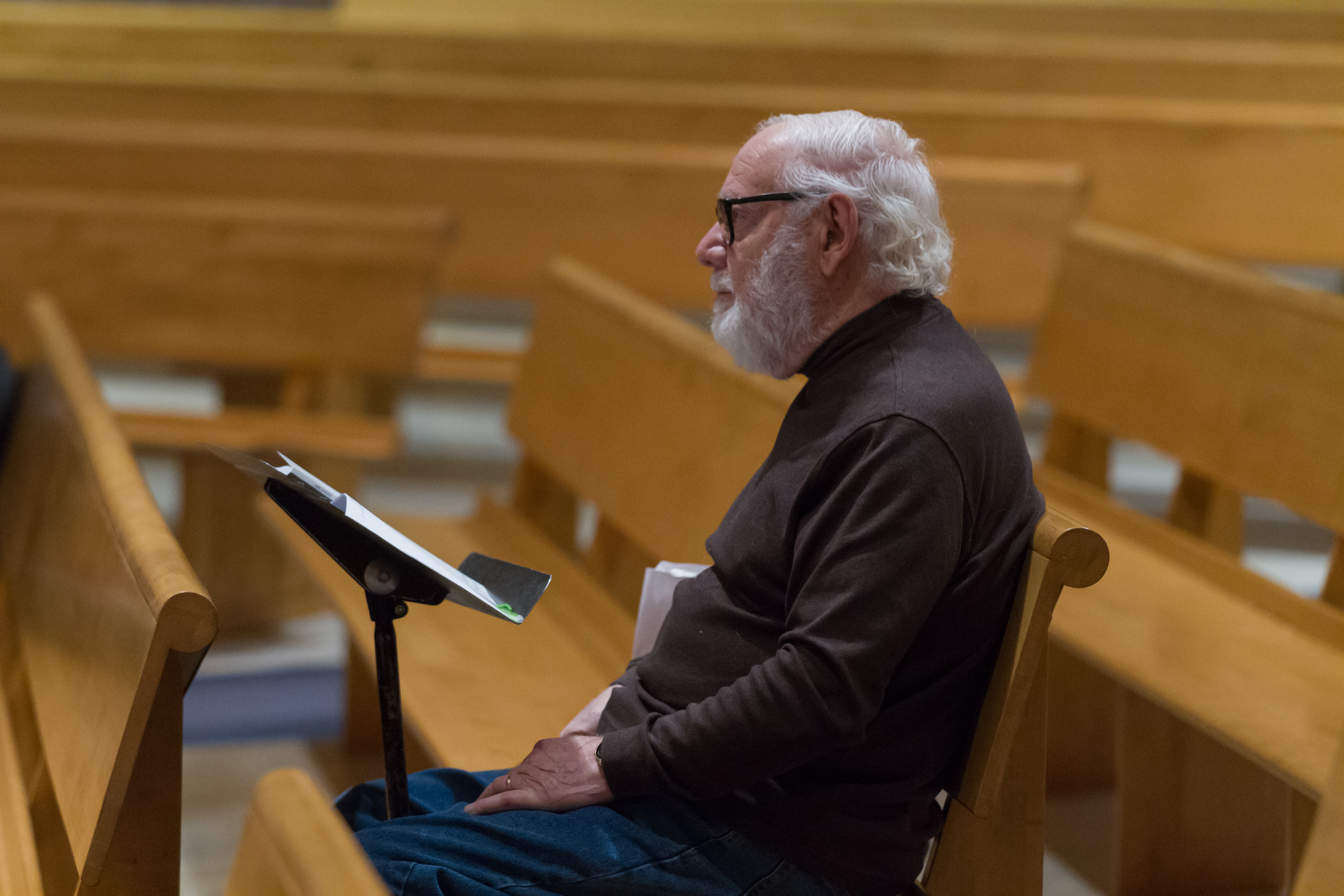|
Rita Shane
Rita Shane (August 15, 1936 – October 9, 2014) was an American coloratura soprano. Biography Born in the Bronx to Julius J. Shane and Rebekah (née Milner) Shane, Rita Shane studied at Barnard College and privately with voice teachers Beverly Peck Johnson and Herbert Bliss. In 1964, she made her operatic debut as Olympia in ''Les contes d'Hoffmann'' with Chattanooga Opera. She appeared the next year with the New York City Opera, as Donna Elvira in ''Don Giovanni''. Shane's performance in the 1971 live recording of ''Les Huguenots'' received praise as "borderline astonishing" by reviewer Charles Parsons. With the New York City Opera, Shane sang in such operas as ''Dialogues des Carmélites'' (as Mme Lidoine), ''The Love for Three Oranges'' (as Fata Morgana), ''Don Giovanni'' (now as Donna Anna) and ''Die Zauberflöte'' (Queen of the Night). She debuted at the Metropolitan Opera in 1973 as the Queen of the Night. Her repertoire at the Met, over eight seasons, included ''La bohè ... [...More Info...] [...Related Items...] OR: [Wikipedia] [Google] [Baidu] |
Beverly Peck Johnson
Beverley Peck Johnson (June 12, 1904 – January 20, 2001) was an American voice teacher, soprano, and pianist who taught on the faculties of several institutions, including Manhattan School of Music and The Juilliard School. Her pupils included several prominent opera singers, actors, and entertainers, including sopranos Renée Fleming, Renata Tebaldi, Anna Moffo, tenor Anthony Dean Griffey, and actors Madeline Kahn, Kevin Kline, Constance Towers, and Juilliard voice professor Cynthia Hoffmann among others. Music critic Anthony Tommasini wrote that "Johnson was particularly valued by students for a keen ability to find individual solutions to their problems." Life and career Born Beverley Peck in Portland, Oregon, she was the daughter of Hartwig O. Peck and Cecilia W. Peck. She grew up in Walla Walla, Washington, and earned degrees in both speech and drama from the Ellison-White Conservatory of Music in Portland. Shortly thereafter she moved to New York where she began studies in ... [...More Info...] [...Related Items...] OR: [Wikipedia] [Google] [Baidu] |
Coloratura Soprano
A coloratura soprano is a type of operatic soprano voice that specializes in music that is distinguished by agile runs, leaps and trills. The term '' coloratura'' refers to the elaborate ornamentation of a melody, which is a typical component of the music written for this voice. Within the coloratura category, there are roles written specifically for lighter voices known as lyric coloraturas and others for larger voices known as dramatic coloraturas. Categories within a certain vocal range are determined by the size, weight and color of the voice. Coloratura is particularly found in vocal music and especially in operatic singing of the 18th and 19th centuries. The word ''coloratura'' ( , , ) means "coloring" in Italian, and derives from the Latin word ''colorare'' ("to color").''Oxford American Dictionaries''. Lyric coloratura soprano A very agile light voice with a high upper extension, capable of fast vocal coloratura. Lyric coloraturas have a range of approximately middle C ... [...More Info...] [...Related Items...] OR: [Wikipedia] [Google] [Baidu] |
La Traviata
''La traviata'' (; ''The Fallen Woman'') is an opera in three acts by Giuseppe Verdi set to an Italian libretto by Francesco Maria Piave. It is based on ''La Dame aux camélias'' (1852), a play by Alexandre Dumas ''fils'' adapted from his own 1848 novel. The opera was originally titled ''Violetta'', after the main character. It was first performed on 6 March 1853 at La Fenice opera house in Venice. Piave and Verdi wanted to follow Dumas in giving the opera a contemporary setting, but the authorities at La Fenice insisted that it be set in the past, "c. 1700". It was not until the 1880s that the composer's and librettist's original wishes were carried out and " realistic" productions were staged. ''La traviata'' has become immensely popular and is among the most frequently performed of all operas. Composition history For Verdi, the years 1851 to 1853 were filled with operatic activity. First, he had agreed with the librettist Salvadore Cammarano on a subject for what would ... [...More Info...] [...Related Items...] OR: [Wikipedia] [Google] [Baidu] |
Erwartung
' (''Expectation''), Opus number, Op. 17, is a one-act monodrama in four scenes by Arnold Schoenberg to a libretto by . Composed in 1909, it was not premiered until 6 June 1924 in Prague conducted by Alexander von Zemlinsky, Alexander Zemlinsky with Marie Gutheil-Schoder as the soprano. The opera takes the unusual form of a monologue for solo soprano accompanied by a large orchestra. In performance, it lasts for about half an hour. It is sometimes paired with BĂ©la BartĂłk's opera ''Bluebeard's Castle'' (1911), as the two works were roughly contemporary and share similar psychological themes. Schoenberg described ''Erwartung'', saying "the aim is to represent in slow motion everything that occurs during a single second of maximum spiritual excitement, stretching it out to half an hour." Philip Friedheim has described ' as Schoenberg's "only lengthy work in an Theme (music)#I different types of music, athematic style", where no musical material returns once stated over the course of ... [...More Info...] [...Related Items...] OR: [Wikipedia] [Google] [Baidu] |
La Scala
La Scala (, , ; abbreviation in Italian of the official name ) is a famous opera house in Milan, Italy. The theatre was inaugurated on 3 August 1778 and was originally known as the ' (New Royal-Ducal Theatre alla Scala). The premiere performance was Antonio Salieri's ''Europa riconosciuta''. Most of Italy's greatest operatic artists, and many of the finest singers from around the world, have appeared at La Scala. The theatre is regarded as one of the leading opera and ballet theatres globally. It is home to the La Scala Theatre Chorus, La Scala Theatre Ballet, La Scala Theatre Orchestra, and the Filarmonica della Scala orchestra. The theatre also has an associate school, known as the La Scala Theatre Academy ( it, Accademia Teatro alla Scala, links=no), which offers professional training in music, dance, stagecraft, and stage management. Overview La Scala's season opens on 7 December, Saint Ambrose's Day, the feast day of Milan's patron saint. All performances must end befor ... [...More Info...] [...Related Items...] OR: [Wikipedia] [Google] [Baidu] |
La Juive
''La Juive'' () (''The Jewess'') is a grand opera in five acts by Fromental Halévy to an original French libretto by Eugène Scribe; it was first performed at the Opéra, Paris, on 23 February 1835. Composition history ''La Juive'' was one of the most popular and admired operas of the 19th century. Its libretto (text) was the work of Eugène Scribe, the prolific dramatic author. Scribe was writing to the tastes of the Opéra de Paris, where the work was first performed – a work in five acts presenting spectacular situations (here the Council of Constance of 1414), which would allow a flamboyant staging in a setting which brought out a dramatic situation which was also underlined by a powerful historical subject. In addition to this, there could be choral interludes, ballet and scenic effects which took advantage of the entire range of possibilities available at the Paris Opera. Because of the story of an impossible love between a Christian man and a Jewish woman, the work ha ... [...More Info...] [...Related Items...] OR: [Wikipedia] [Google] [Baidu] |
New Orleans Opera
Opera has long been part of the musical culture of New Orleans, Louisiana. Operas have regularly been performed in the city since the 1790s, and since the early 19th century, New Orleans has had a resident company regularly performing opera in addition to theaters hosting traveling performers and companies. Earlier opera houses Operas were staged at a variety of theaters in the city, the first documented was André Grétry's ''Sylvain'' at the Theatre de la Rue Saint Pierre on 22 May 1796. On 30 January 1808, the Théâtre St. Philippe was opened with the U.S. premiere of Étienne Méhul's ''Une folie''. The U.S. premiere of Luigi Cherubini's ''Les deux journées'' took place at this theater on 12 March 1811. The city's most famous opera venue between 1819 and 1859 was the Théâtre d'Orléans. That theater was succeeded in 1859 by the French Opera House, located on Bourbon Street in the French Quarter. Living in a cosmopolitan city, New Orleans' inhabitants, whether high in sta ... [...More Info...] [...Related Items...] OR: [Wikipedia] [Google] [Baidu] |
I Lombardi Alla Prima Crociata
''I Lombardi alla Prima Crociata'' (''The Lombards on the First Crusade'') is an operatic ''dramma lirico'' in four acts by Giuseppe Verdi to an Italian libretto by Temistocle Solera, based on an epic poem by Tommaso Grossi, which was "very much a child of its age; a grand historical novel with a patriotic slant". Its first performance was given at the Teatro alla Scala in Milan on 11 February 1843. Verdi dedicated the score to Maria Luigia, the Habsburg Duchess of Parma, who died a few weeks after the premiere. In 1847, the opera was significantly revised to become Verdi's first grand opera for performances in France at the Salle Le Peletier of the Paris Opera under the title of ''JĂ©rusalem''. Composition history Grossi's original epic poem had plot complications that required the librettist to make significant changes; the historical characters portrayed in the original do not appear and the story becomes that of a fictional family and its involvement in the First Crusade. J ... [...More Info...] [...Related Items...] OR: [Wikipedia] [Google] [Baidu] |
Médée (Cherubini)
''Médée'' is a French language opéra-comique by Luigi Cherubini. The libretto by François-Benoît Hoffman (Nicolas Étienne Framéry) was based on Euripides' tragedy of Medea and Pierre Corneille's play ''Médée''. It is set in the ancient city of Corinth. The opera was premiered on 13 March 1797 at the Théâtre Feydeau, Paris. It met with a lukewarm reception and was not immediately revived. During the twentieth century, it was usually performed in Italian translation as ''Medea'', with the spoken dialogue replaced by recitatives not authorized by the composer. More recently, opera companies have returned to Cherubini's original version. The long-lost final aria, which Cherubini appears to have elided from his original manuscript, was discovered by researchers from the University of Manchester and Stanford University by employing x-ray techniques to reveal the blackened out areas of Cherubini's manuscript. Performances and versions Several versions of the opera were p ... [...More Info...] [...Related Items...] OR: [Wikipedia] [Google] [Baidu] |
Time (magazine)
''Time'' (stylized in all caps) is an American news magazine based in New York City. For nearly a century, it was published Weekly newspaper, weekly, but starting in March 2020 it transitioned to every other week. It was first published in New York City on March 3, 1923, and for many years it was run by its influential co-founder, Henry Luce. A European edition (''Time Europe'', formerly known as ''Time Atlantic'') is published in London and also covers the Middle East, Africa, and, since 2003, Latin America. An Asian edition (''Time Asia'') is based in Hong Kong. The South Pacific edition, which covers Australia, New Zealand, and the Pacific Islands, is based in Sydney. Since 2018, ''Time'' has been published by Time USA, LLC, owned by Marc Benioff, who acquired it from Meredith Corporation. History ''Time'' has been based in New York City since its first issue published on March 3, 1923, by Briton Hadden and Henry Luce. It was the first weekly news magazine in the United St ... [...More Info...] [...Related Items...] OR: [Wikipedia] [Google] [Baidu] |
Miss Havisham's Fire
''Miss Havisham's Fire'' is an opera in 2 acts by composer Dominick Argento with an English language libretto by John Olon-Scrymgeour. The work is loosely based on Charles Dickens' 1861 novel ''Great Expectations'', and centers on an investigation of the circumstances surrounding the death of Aurelia Havisham. Commissioned by the New York City Opera, the work premiered on March 22, 1979, at the David H. Koch Theater at the Lincoln Center for the Performing Arts in Manhattan. ''Miss Havisham's Fire'' was initially intended to be a farewell vehicle for soprano Beverly Sills, but she pulled out of the project due to illness and was replaced by Rita Shane. The opera received negative to mixed reviews in the press at its premiere and was not mounted again for more than 20 years. Argento revised it into a one-act monodrama entitled ''Miss Havisham's Wedding Night'' which Minnesota Opera premiered on May 1, 1981, at the Tyrone Guthrie Theater in Minneapolis, conducted by Philip Brunell ... [...More Info...] [...Related Items...] OR: [Wikipedia] [Google] [Baidu] |
Dominick Argento
Dominick Argento (October 27, 1927 – February 20, 2019) was an American composer known for his lyric operatic and choral music. Among his best known pieces are the operas '' Postcard from Morocco'', '' Miss Havisham's Fire'', ''The Masque of Angels'', and '' The Aspern Papers.'' He also is known for the song cycles ''Six Elizabethan Songs'' and ''From the Diary of Virginia Woolf''; the latter earned him the Pulitzer Prize for Music in 1975. In a predominantly tonal context, his music freely combines tonality, atonality and a lyrical use of twelve-tone writing. None of Argento's music approaches the experimental, stringent ''avant-garde'' fashions of the post-World War II era.Saya, Virginia. "Dominick Argento," ''Grove Music Online'', ed. L. Macy. (Accessed 15 December 2006). As a student in the 1950s, Argento divided his time between the United States and Italy, and his music is greatly influenced by both his instructors in the United States and his personal affection for Italy ... [...More Info...] [...Related Items...] OR: [Wikipedia] [Google] [Baidu] |







